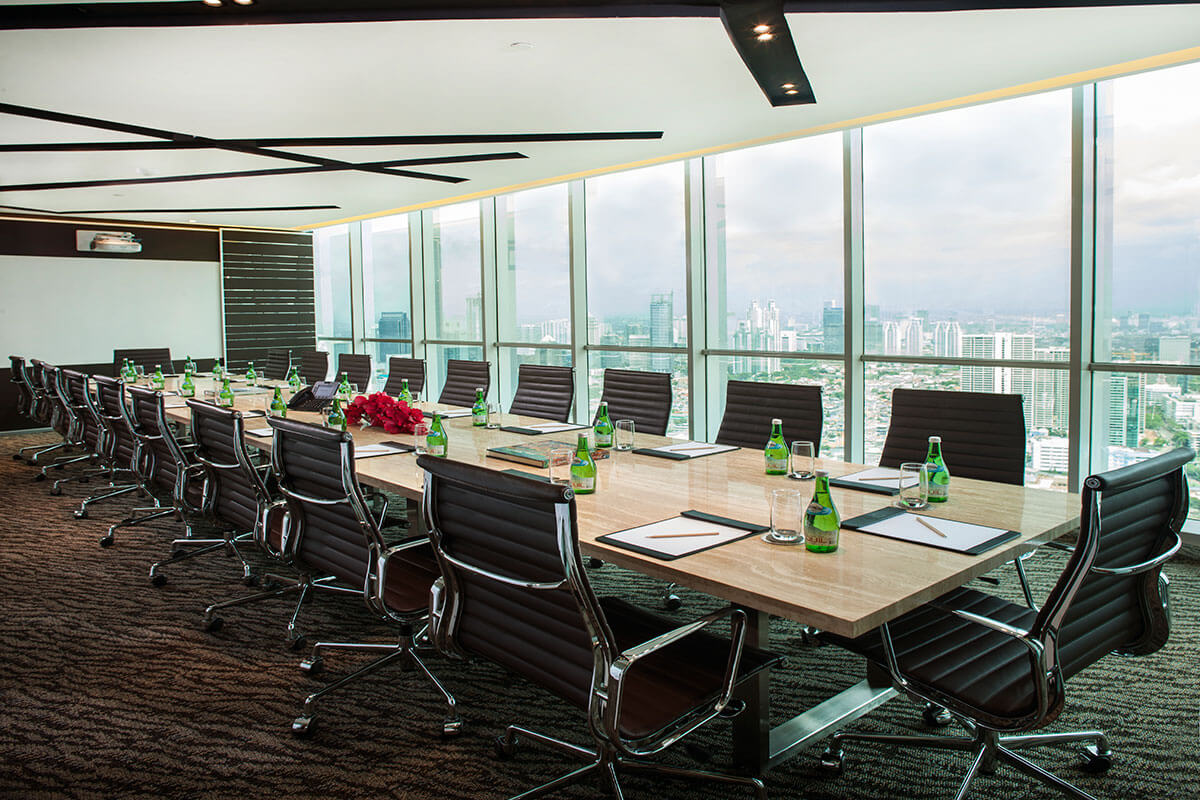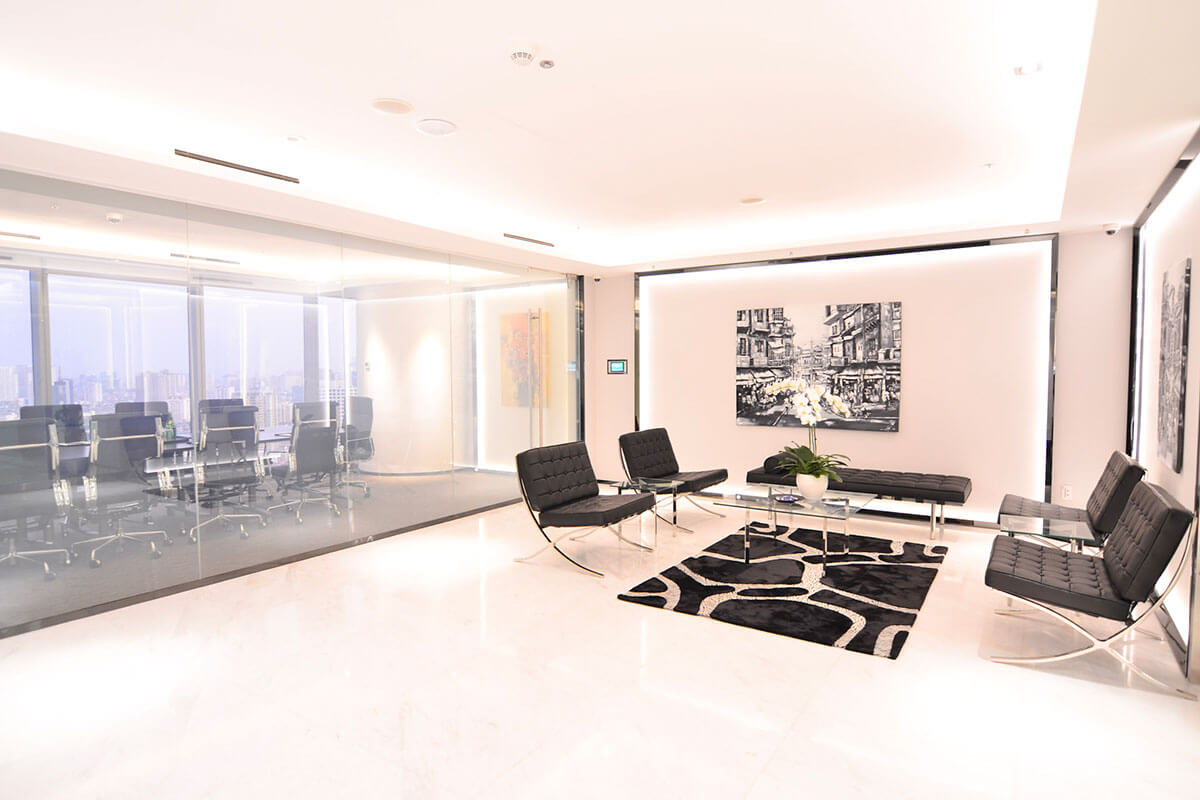Serviced Offices Popular Among Foreign Firms
Hamzah, Contributor, Jakarta
One morning, while cars were crawling in a long line along Jakarta’s Semanggi cloverleaf, 42-year-old Vira Soekardiman was already in a lift taking her up to her office on the 39th floor of the nearby GKBI Tower. It is in this office that in the past year she has spent her days in the office rental business, a new type of business known as the serviced office business.
For only US$700 a month, you can have an office in a super-modern building in Jakarta. However, to be able to enjoy this luxury, you must be willing to wait as the waiting list is long.
“The occupancy rate of our office space is currently at a 100 percent. This is indeed a new trend,” she said.
The occupancy rate is really amazing because office rental rates in Jakarta are very high. In the Sudirman business district, for example, office space rental fees stand at $33 per square meter, twice as much as the rental of a similar building located in the suburbs.
Cost efficiency is indeed one of the advantages offered by serviced offices. In addition, a serviced office is also associated with a practical and flexible office space concept. It is practical as a serviced office is ready for occupancy because all the basic necessities of an office such as furniture, partitions, carpets, fax machines, stationery, telephone and internet networks are available. It is flexible in nature because you can choose the area of your office and the length of the rental to suit your needs.
This latest office model is unlike the permanent office space arrangement, in which you must spend quite a lot of money at the beginning to purchase office equipment and pay for office overhead costs such as electricity and telephone connections. Then you must also pay your core staffers such as a secretary and office boys. To make it more complicated, a number of companies managing office buildings in Jakarta set a minimum area to be rented at 160 square meters.
Meanwhile, a serviced office provides various traditional office facilities, ranging from personalized bilingual telephonists and instant call forwarding, copywriting and editing to executive secretarial services and translation.
In addition, this type of office also makes available many other facilities such as desktop publishing, color laser printing and picture scanning, photocopying, book-binding, travel arrangements, telemarketing, the despatch of goods locally and internationally, recruitment, accounting and financial records, concierge service, document safekeeping, office rent and disaster recovery.
Owing to the great number of advantages it offers, it comes as no surprise that serviced offices are now preferred by companies wishing to set up branch offices as well as for sales offices and entrepreneurs wishing to start a new business. Serviced offices are also most popular among multinational corporations.
“7 out of 10 of our clients are foreign companies,” said Vira, who is the Director of CEO SUITE. “The largest is ABN Amro Bank,” she added.
The concept of instant serviced offices, she said, is also an attraction. Geoff Rhodes pioneered the operation of Etihad Airlines in Indonesia in September 2005.
“He began with a laptop computer and now he has recruited a number of employees and rents seven units of such instant offices.”
At CEO SUITE, the office rent ranges between $700 and $4,000 a month for companies with 20 employees. This rate, Vira said, is half of the cost of having an office in a standard office building. A careful calculation will show that the rent of one instant office provided by CEO SUITE as much lower than the rental of a conventional office.
In Jakarta, some 300 CEO SUITE’s clients occupy two serviced office facilities : the Bursa Efek Jakarta (BEJ/Jakarta Stock Exchange) building and the GKBI Tower. The company serves twice as many clients in Menara Maxis in Kuala Lumpur, Singapore Land Tower in Singapore, Hong Kong New World Tower in Shanghai, Twin Tower East in Beijing and in Seoul.
‘The current occupancy rates for our overseas centers remain at a full 100 percent. You must first be put on a waiting list if you wish to enjoy our facilities.”
Serviced Offices Offer Flexibility in Space
Mee Kim, Contributor, Jakarta
Few business activities are more disruptive than an office move. Can better planning and more creativity achieve relocation harmony?
Companies looking for office space typically go through four key questions: Where can we find more office space? How can our company accommodate future growth? What is the rental? What incentives can we get?
These are similar questions asked the world over. Answering these questions leads to another: How far in advance of the lease expiry should a review begin for property options?
For relocation to a conventional space, 12 months could be sufficient, although 18 months would allow greater flexibility in the planning process. Besides, it is crucial for companies to be clear about their longer-term strategic goals and business plans as excessive space commitment or shortage of space in a conventional fixed term commitment can be a limiting factor for future business considerations.
Among other office planning factors, the strategic ability to identify the right office building, test-fit potential office space, engage a specific themed-design company for the right corporate identity and space configuration will ensure higher chances of creating a high-performance workplace environment.
In matured markets characterized by tight office supply and rising rents – serviced offices provide a realistic option for all considerations in an office move. Lower risk, shorter-term commitment, the serviced option enables firms to hit the ground running from day one.
The serviced option may seem, at first glance, quite expensive in price per square meter, but considering that rent includes management fees, utilities, general office maintenance, full secretarial staff support, complete business and IT infrastructure and meeting facilities – it provides a very convenient, and cost-effective option for new market entrants who are unlikely to know the property market, or to be certain about their future manpower needs.
The greatest advantage of the serviced option is its flexibility for companies to base their longer-term manpower and space requirements on the growth rate of the business.
As with Grade A property/office buildings, the availability of serviced offices is categorized by distinct upper grade, and mid-tiers in the city, and locating the right one can often mean that successful first step in a foreign land.
Tips on serviced offices
1. Location is the most important of all considerations – identifying a serviced office in a Grade A building in a central location in the city’s business district will ensure overall accessibility, convenience and prestige for your company.
2. Envisage the space as your future office. Design, space configurations, technical specifications of IT / phone equipment, internet speed, peripheral services for meetings such as video conferencing facilities, security … A well-equipped serviced office with advanced technology will mean better support for your daily operations.
3. Track records aside, it is important to assess personally the quality and commitment of the management and support team. From the receptionists, to the salesperson, to the secretaries, they will be your extended support team to work with on a daily basis. Presentation, qualifications, efficiency – they will be your company’s first impressions.
4. Make efforts to verify their service efficiency with existing and past clients. A copy of their client list will disclose what type of organizations or corporations you will be sharing your premise with as neighbors.
5. Enquire about other support services non-related to real estate that the serviced office can provide. For outsourcing of banking, accounting, legal, recruitment, and registration type of services, the serviced office has the networks and resources to have them all covered under one umbrella!
Be it the conventional option or the serviced option, having a workable space will be the main relocation challenge.
As technology allows us to work across the globe anywhere and at anytime, the need for traditional work settings, where individuals spend most of their day at their desks doing task-based work, has to make way for greater flexibility in how space is configured.
Being able to offer high-performance workplace environments will challenge traditional thinking, and encourage staff to think of new, different and better ways of doing tasks.
The writer Mee Kim is founder and President of CEO SUITE
Apr 26, 2013




 Bahasa
Bahasa
 日本語
日本語
 한국어
한국어
 ไทย
ไทย
 tiếng Việt
tiếng Việt
 中文
中文






